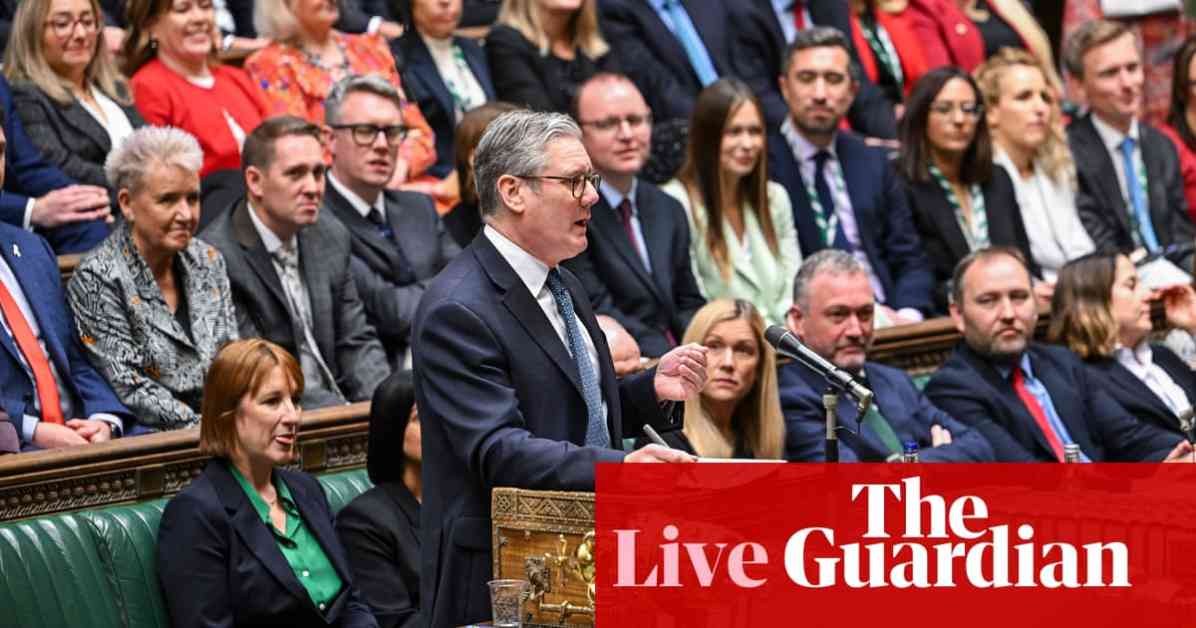In his final months as prime minister, PMQs was a terrible ordeal for Rishi Sunak, and there were not many occasions where he made the weather. But today, unburdened by the need to defend the record of the Conservative party in government, and able to deploy the standard PMQs technique of answering a question to which the PM either can’t or won’t reply, he had a successful outing. He mostly challenged Keir Starmer on two issues – employers’ national insurance contributions, and fiscal rules – and came away with evasive non-answers that were strong enough to make news.
Of the two topics, national insurance is probably more significant. There has already been ample talk of the government using the budget to change the definition of debt it uses for its debt target – as Kiran Stacey reports, Rachel Reeves raised this at cabinet this week – and Starmer’s wriggling on this issue was more a confirmation of what we expect than anything very surprising. But his national insurance answer will attract a lot more attention, particularly from the Tory papers. As Sunak pointed out, Labour never quite clarified during the election campaign what not raising taxes for “working people” meant, and if Reeves needs to raise significant money in the budget, employers’ NICs must be a potential target.
That said, the exchanges were all relatively low-energy, and neither Sunak nor Starmer seemed very interested in treating PMQs as a gladiatorial contest. Sunak, of course, is on his way out, and he seemed preoccupied with proving that he was right all along during the election campaign when he warned about Labour raising taxes – ie in winning an argument about the past, not the future.
And Starmer seems to have almost zero interest in the yah-boo, performative side of PMQs. He was not very compelling in the chamber today, but his authority remained intact and his MPs did not seem to mind. Against another opposition leader, his lack of interest in jokes and clever put-downs might be a problem for him. But it wasn’t today.
In addition to the PMQs, there were other key events that took place. The SNP claimed that the Council of Nations and Regions meeting hosted by Keir Starmer would be an “insult” to Scotland as Scottish mayors were excluded. This drew criticism from the SNP, highlighting a potential issue in intergovernmental cooperation.
Furthermore, John Woodcock, the government’s independent adviser on political violence, was reported to be out of his post according to Byline Times. However, a No 10 spokesperson clarified that he remains in place for now, indicating a potential shift in the government’s approach to counter extremism.
Overall, the dynamics of the UK political landscape are evolving, with leaders like Keir Starmer and Rishi Sunak engaging in crucial discussions on national issues like employers’ national insurance contributions and fiscal rules. As the country navigates through these debates, it will be interesting to see how the decisions made will impact the future trajectory of the UK.












